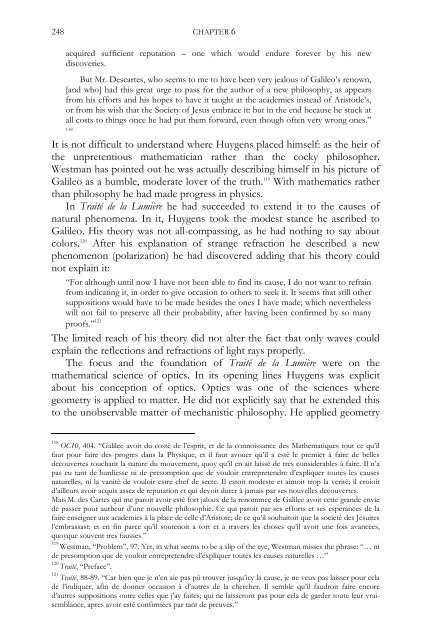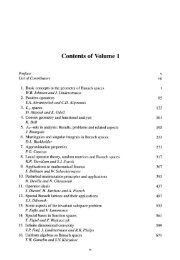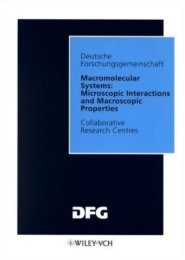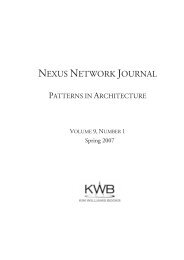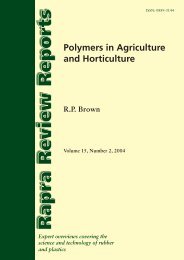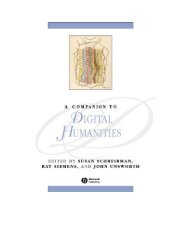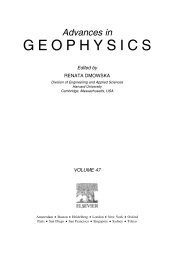Lenses and Waves
Lenses and Waves
Lenses and Waves
Create successful ePaper yourself
Turn your PDF publications into a flip-book with our unique Google optimized e-Paper software.
248 CHAPTER 6<br />
acquired sufficient reputation – one which would endure forever by his new<br />
discoveries.<br />
But Mr. Descartes, who seems to me to have been very jealous of Galileo’s renown,<br />
[<strong>and</strong> who] had this great urge to pass for the author of a new philosophy, as appears<br />
from his efforts <strong>and</strong> his hopes to have it taught at the academies instead of Aristotle’s,<br />
or from his wish that the Society of Jesus embrace it: but in the end because he stuck at<br />
all costs to things once he had put them forward, even though often very wrong ones.”<br />
118<br />
It is not difficult to underst<strong>and</strong> where Huygens placed himself: as the heir of<br />
the unpretentious mathematician rather than the cocky philosopher.<br />
Westman has pointed out he was actually describing himself in his picture of<br />
Galileo as a humble, moderate lover of the truth. 119 With mathematics rather<br />
than philosophy he had made progress in physics.<br />
In Traité de la Lumière he had succeeded to extend it to the causes of<br />
natural phenomena. In it, Huygens took the modest stance he ascribed to<br />
Galileo. His theory was not all-compassing, as he had nothing to say about<br />
colors. 120 After his explanation of strange refraction he described a new<br />
phenomenon (polarization) he had discovered adding that his theory could<br />
not explain it:<br />
“For although until now I have not been able to find its cause, I do not want to refrain<br />
from indicating it, in order to give occasion to others to seek it. It seems that still other<br />
suppositions would have to be made besides the ones I have made; which nevertheless<br />
will not fail to preserve all their probability, after having been confirmed by so many<br />
proofs.” 121<br />
The limited reach of his theory did not alter the fact that only waves could<br />
explain the reflections <strong>and</strong> refractions of light rays properly.<br />
The focus <strong>and</strong> the foundation of Traité de la Lumière were on the<br />
mathematical science of optics. In its opening lines Huygens was explicit<br />
about his conception of optics. Optics was one of the sciences where<br />
geometry is applied to matter. He did not explicitly say that he extended this<br />
to the unobservable matter of mechanistic philosophy. He applied geometry<br />
118 OC10, 404. “Galilee avoit du costè de l’esprit, et de la connoissance des Mathematiques tout ce qu’il<br />
faut pour faire des progres dans la Physique, et il faut avouer qu’il a estè le premier à faire de belles<br />
decouvertes touchant la nature du mouvement, quoy qu’il en ait laissè de tres considerables à faire. Il n’a<br />
pas eu tant de hardiesse ni de presomption que de vouloir entrepretendre d’expliquer toutes les causes<br />
naturelles, ni la vanitè de vouloir estre chef de secte. Il estoit modeste et aimoit trop la veritè; il croioit<br />
d’ailleurs avoir acquis assez de reputation et qui devoit durer à jamais par ses nouvelles decouvertes.<br />
Mais M. des Cartes qui me paroit avoir estè fort jaloux de la renommee de Galilee avoit cette gr<strong>and</strong>e envie<br />
de passer pour autheur d’une nouvelle philosophie. Ce qui paroit par ses efforts et ses esperances de la<br />
faire enseigner aux academies à la place de celle d’Aristote; de ce qu’il souhaitoit que la societè des Jesuites<br />
l’embrassast: et en fin parce qu’il soutenoit a tort et a travers les choses qu’il avoit une fois avancees,<br />
quoyque souvent tres fausses.”<br />
119 Westman, “Problem”, 97. Yet, in what seems to be a slip of the eye, Westman misses the phrase: “… ni<br />
de presomption que de vouloir entrepretendre d’expliquer toutes les causes naturelles …”<br />
120 Traité, “Preface”.<br />
121 Traité, 88-89. “Car bien que je n’en aie pas pû trouver jusqu’icy la cause, je ne veux pas laisser pour cela<br />
de l’indiquer, afin de donner occasion à d’autres de la chercher. Il semble qu’il faudroit faire encore<br />
d’autres suppositions outre celles que j’ay faites; qui ne laisseront pas pour cela de garder toute leur vraisemblance,<br />
apres avoir esté confirmées par tant de preuves.”


